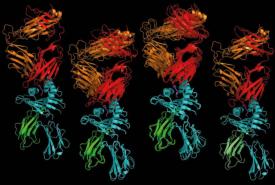iNCOVACC is now available on CoWin
Bharat Biotech International Limited (BB1L), a global leader in vaccine innovation and developer of vaccines for infectious diseases, today announced that iNCOVACC* (BBV154), is scheduled to be introduced in the country' as a booster dose shortly. Earlier this month, Bharat Biotech received approval from the Central Drugs Standard Control Organization (CDSCO) for the use of heterologous booster doses of iNCOVACC*.


















